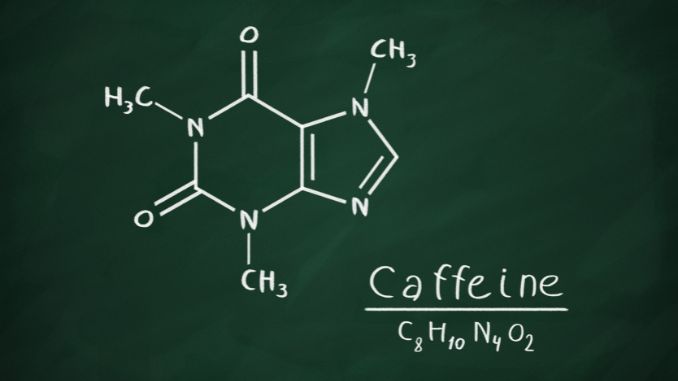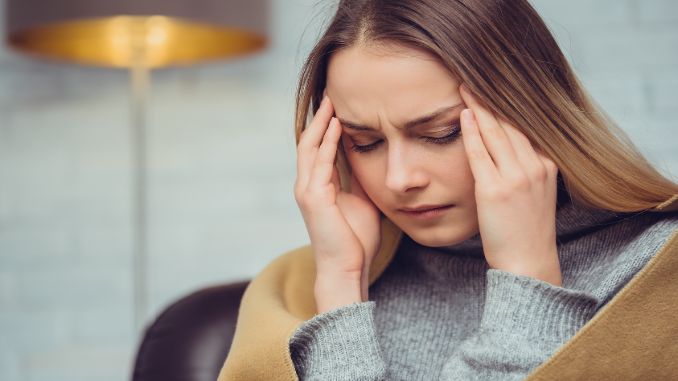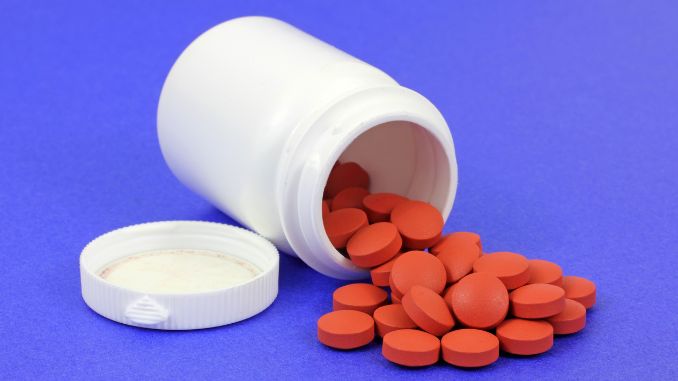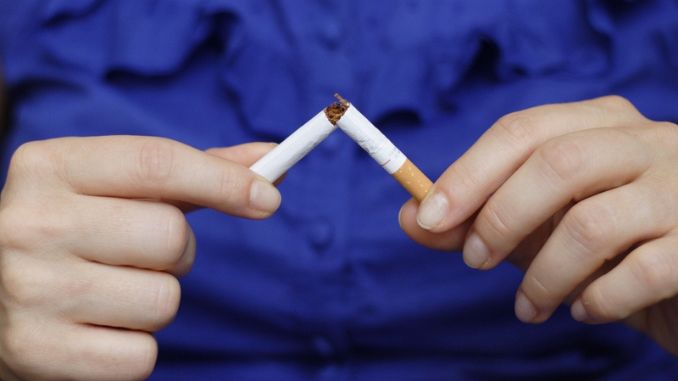Caffeine is a common stimulant found in coffee, energy drinks, tea, and various medications or supplements (caffeine tablets, caffeine powder). While moderate caffeine consumption can provide a welcome energy boost, an excessive intake can get the caffeine out of your system and lead to a caffeine overdose, also known as caffeine toxicity. It’s essential to recognize the signs of a caffeine overdose (caffeine intoxication) and know how to treat it at home when immediate medical assistance is unavailable.
In this article, we’ll discuss caffeine overdose symptoms, the steps to manage it at home, and when to seek professional medical help.
Symptoms of Caffeine Overdose
1. Restlessness and Jitters
When one consumes too much caffeine, noticeable symptoms include restlessness and jitters. which can make you feel like you need to “get caffeine out of your system. It’s a feeling of being unable to sit still or relax. Individuals may feel a constant need to move or fidget and may have difficulty concentrating or focusing on tasks.
Jitters, or a shaky feeling, can also occur due to a caffeine overdose. The excess caffeine can cause an increase in heart rate and blood pressure, leading to a jittery sensation throughout the body. It is important to be mindful of caffeine intake and recognize these symptoms as potential signs of consuming too much caffeine.
Picture yourself as if you’ve had several cups of coffee, and your body seems to be running on overdrive. You might find yourself tapping your fingers, shifting in your seat, or pacing around without a clear reason. The sensation is akin to the feeling of being in a rush, even when there’s no apparent need for it.
2. Heart Palpitations
When it comes to caffeine overdose, it’s essential to be aware of a particularly concerning symptom known as heart palpitations, which involve a rapid and irregular heartbeat. These palpitations are more than just the normal thumping of your heart. They can feel like a fluttering or pounding sensation as if your heart is trying to “get caffeine out of your system” and keep pace with a racing train, all while maintaining an unpredictable rhythm.
These palpitations serve as a clear signal from your body that something isn’t right. It’s a distress call that requires immediate attention. This symptom can be incredibly disconcerting due to too much caffeine, as it’s a direct response to the excessive stimulation that caffeine can trigger in your body’s central nervous system.
The mechanism behind caffeine-induced heart palpitations is complex, rooted in how caffeine interacts with your heart’s electrical signals. Caffeine stimulates the release of certain chemicals that can affect the pacing of your heart. Leading to this irregular and often rapid beat. It’s as if the normal conductor of your heart’s orchestra suddenly starts to improvise. Creating a discordant tune that your body isn’t used to.
3. Nausea and Vomiting
One notable consequence of more caffeine is irritation of the delicate lining of your stomach. This irritation can result in an uncomfortable sensation that we commonly associate with nausea—that queasy feeling in your stomach that makes you want to avoid food or movement.
Think of the lining of your stomach as a protective barrier—a layer of defense against the various substances you ingest. When you consume too much caffeine, it’s like subjecting this protective lining to a sudden onslaught. The caffeine can trigger a response from your stomach, leading it to become more sensitive and reactive. This heightened sensitivity may manifest as gnawing discomfort or a feeling of unease, often accompanied by changes in blood pressure and the potential for nausea.
Imagine you’re on a boat in a choppy sea, and the constant rocking and rolling of the waves makes your stomach churn. This sense of uneasiness can be quite similar to the nausea caused by excessive caffeine consumption.
In more severe cases, with more caffeine, when the irritation becomes pronounced, your body might respond with a more forceful defense mechanism: vomiting. It’s as if your body is trying to expel the irritant, much like how you might throw away spoiled food to avoid getting sick. Vomiting can be distressing and is often accompanied by a feeling of relief afterward as if your body is telling you it’s done with the caffeine overload.
This stomach irritation and the subsequent feelings of nausea and, in some instances, vomiting are important signs that your body is not comfortable with the amount of caffeine content it’s processing.
4. Anxiety and Agitation
Consuming excessive amounts of caffeine has the potential to induce an array of undesirable physiological and psychological responses. One of the foremost effects is the provocation of anxiety, a state characterized by heightened unease and apprehension. This heightened state of anxiety often goes hand in hand with increased agitation, as if one’s nerves are hyperactive and easily triggered.
Imagine the sensation of being on edge as if walking along the precipice of a cliff, where even the slightest disturbance can cause a cascade of nerves, putting you in a state of readiness that might be uncomfortable or overwhelming. This effect is particularly noticeable when high doses of caffeine are ingested, as the stimulant properties of caffeine interact with the body’s central nervous system, causing an exaggerated response that can amplify these feelings of anxiety and agitation.
The reason behind this is how caffeine affects certain neurotransmitters, such as adenosine, in the brain. Adenosine is responsible for promoting relaxation and sleep. Caffeine’s effect, being an adenosine receptor antagonist, is to work against these calming effects, leading to increased alertness but also making the nervous system more prone to overactivity. Consequently, the result can be a jittery, tense sensation that many describe as feeling “on edge.”
It’s important to recognize that individual sensitivity to caffeine varies widely, so what may cause significant discomfort for one person consuming caffeine might have a milder impact on another.
5. Headache
Imagine this headache as a relentless drumbeat pounding away at the inside of your skull. The sensation can range from a dull ache to a more intense, pulsating feeling, like a drum being struck repeatedly, amplifying with each beat. It’s a discomfort that can linger for a significant period, making it challenging to focus on anything else.
Adding to the discomfort, when you’re experiencing a caffeine-induced headache, you might find yourself more sensitive to light and sound. It’s as if your senses are dialed up to a higher level, and everyday stimuli that you’d normally tolerate become intensified, almost overwhelming. Imagine being in a room with bright lights and loud music when you have a headache. It can feel like an assault on your senses, making you want to retreat to a quieter, darker space to find relief.
These symptoms—the throbbing headache and the accompanying sensitivity—are essential indicators that your body is reacting to an excess of caffeine. It’s a clear sign that it’s time to reduce your own caffeine levels and intake and allow your system to return to a more balanced state.
Managing Caffeine Overdose at Home
1. Hydration
By consistently consuming an ample amount of water, you facilitate the gradual dilution of the caffeine circulating within your body, which in turn can bring about relief from a range of associated symptoms. It’s important to emphasize the importance of maintaining proper hydration as a goal, but it’s equally crucial to exercise caution against going to the extreme, as indulging in excessive water consumption may potentially give rise to a variety of health-related concerns.
2. Rest and Relaxation
It is advisable to actively seek and find a tranquil, noise-free environment where you can comfortably rest. Engaging in relaxation practices within this conducive setting has the potential to alleviate the uncomfortable sensations of jitters and heightened anxiety often experienced following a caffeine overdose.
By establishing a peaceful oasis for your body and mind, you create an environment that facilitates the reduction of these unwanted symptoms, enabling your system to regain a state of equilibrium and ease. The absence of external disturbances in this serene space plays a significant role in promoting a sense of calmness, supporting the body’s natural recovery processes, and providing a valuable psychological respite to counter the physiological impact of voluntary caffeine overdose.
3. Avoid Further Caffeine

It is crucial to exercise diligent caution by deliberately avoiding any and all supplementary sources of caffeine, encompassing a wide spectrum of products such as coffee, tea, energy drinks, and medications or supplements containing caffeine as an active ingredient. This encompasses not only traditional caffeinated beverages and brewed coffee but also extends to over-the-counter and prescription medications that may include caffeine, which might inadvertently exacerbate the existing effects of caffeine in your system.
This comprehensive approach to abstaining from additional caffeine intake is pivotal in preventing further accumulation of this stimulant, allowing your body the opportunity to gradually metabolize and eliminate the excess caffeine, thereby aiding in the reduction of potential adverse effects. It’s imperative to be vigilant in scrutinizing labels and considering potential hidden sources of caffeine, as this diligence forms an integral component of the strategy to manage the consequences of excessive caffeine consumption effectively.
4. Try Over-the-Counter Pain Relievers
In addressing headaches and various forms of discomfort, over-the-counter (OTC) pain relievers present a readily accessible and potentially effective means of relief. These medications, available without a prescription, belong to the class of non-prescription analgesics, renowned for their ability to alleviate pain and discomfort.
By opting for these non-prescription alternatives, you can harness their specific mechanisms of action to target pain pathways. However, it is essential to exercise due caution in adhering to recommended dosages and guidelines to ensure both their efficacy and safety.
As with any medication, it is prudent to consult a healthcare professional, especially if you have underlying health conditions or if your symptoms worsen or persist, to ensure the most appropriate and effective course of action.
When to Seek Professional Help
1. Severe Symptoms
In the event that you encounter severe symptoms that give rise to significant concern, such as intense chest pain, a state of confusion that disrupts your usual cognitive functioning, substantial difficulty in maintaining normal breathing patterns, or the unsettling occurrence of a seizure, it is absolutely imperative that you take swift and decisive action by seeking immediate and professional medical attention.
These symptoms, when of a severe nature, may be indicative of a potentially grave underlying condition that necessitates timely assessment and intervention by medical experts.
2. Symptoms Persist
If you find that your symptoms continue for a prolonged duration, even after trying various home remedies in an effort to alleviate them, it becomes of utmost importance to reach out to a qualified healthcare professional for assistance and guidance.
This persistent presence of symptoms may signify a more complex underlying issue that requires the expertise of a medical expert to properly diagnose and manage. While home remedies can be helpful for mild and short-lived discomforts, when symptoms linger or worsen, it’s a clear indication that a thorough evaluation by a healthcare provider is necessary.
Your health and well-being are paramount, and the expertise of a healthcare professional will help determine the most effective course of action to address your symptoms and work towards a resolution that brings relief and lasting health.
3. Underlying Health Conditions
If you happen to have pre-existing health conditions or are currently on medications that could potentially interact with caffeine, it is absolutely crucial to get the caffeine out of your system and seek consultation with a medical doctor, regardless of the perceived severity of the symptoms you’re experiencing.
The presence of pre-existing health conditions or the use of certain medications and supplements can significantly influence how your body reacts to caffeine, potentially leading to unforeseen complications or exacerbating underlying health concerns. The complex interplay between your existing health status, medication regimen, and caffeine consumption requires the expertise of a healthcare professional to assess the situation comprehensively.
By consulting a doctor, you ensure that any potential risks or adverse effects are properly evaluated and managed, minimizing the likelihood of negative interactions.
Conclusion
Caffeine overdose is a matter of significant concern, but armed with the appropriate knowledge, you can proactively take steps to effectively manage it within the comfort of your home. First and foremost, it’s essential to be able to recognize the telltale symptoms of caffeine overdose. By being aware of these potential signs, you can identify the issue early, facilitating prompt intervention.
The key takeaway is moderation. Practicing moderation in caffeine consumption is the best preventive measure to avoid such situations altogether. Being mindful of your caffeine intake and heeding the early signs of potential overdose can safeguard your well-being, allowing you to enjoy the benefits of caffeine without the risks associated with excessive consumption.

Rick Kaselj MS, is a leading kinesiologist and injury specialist as well as co-creator of the best-selling Unlock Your Hip Flexors program. Rick creates exercise programs that help people heal injuries and eliminate pain, so they can go back to living a full, active, healthy life.













